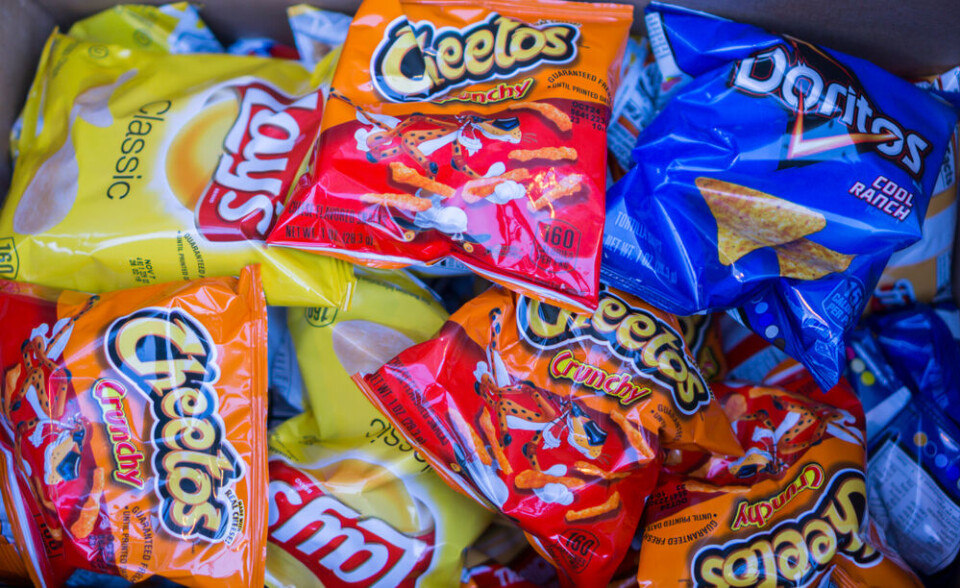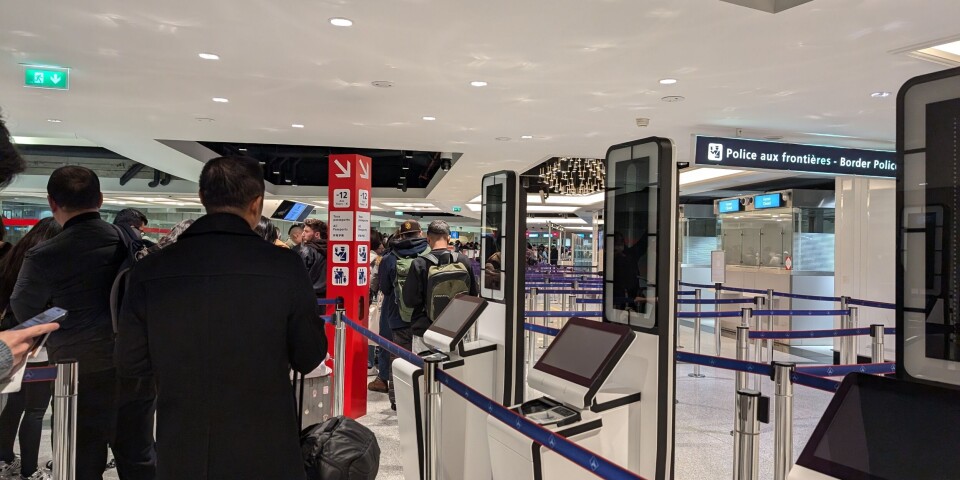-
Warm days ahead: French weekly weather outlook March 31 - April 4
Temperatures of 20C are expected towards the end of the week across France
-
Second runway at Bordeaux airport likely to be renovated not closed
Move may lead to backlash from local people who are unhappy due to the noise levels
-
Pension age reform in France: New poll shows support for a return to age 62
Employers' organisations and trade unions are currently meeting to discuss the subject on the orders of Prime Minister François Bayrou
Lipton, Lay's, Doritos: French supermarket stops sales in price row
Carrefour has blamed an ‘inacceptable rise in prices’ from manufacturer PepsiCo during a tense negotiation period

Craving your favourite crisps? Look elsewhere than French supermarket Carrefour, which has stopped selling brands including Lay’s and Doritos - among other PepsiCo products - in a row over rising prices.
Since January 4, Carrefour has stopped selling well-known items from the US giant manufacturer, including Pepsi cola, 7Up soda, Lipton ice tea, Quaker Oats cereal and oats, and Bénénuts mixed nuts.
This is due to an “inacceptable rise in prices” on the part of PepsiCo, Carrefour has stated. PepsiCo is looking to increase prices by 7% across most products.
But Carrefour is now looking to put pressure on the manufacturer during the usual supermarket negotiation period, which is set to close at the end of January.
Instead of selling the usual products, the group has replaced them with bright red stickers in-store, which read: “We no longer sell this brand due to an inacceptable price rise…please excuse us for this rare annoyance.”
Carrefour boycott Pepsi ouvertement !
— MoneyRadar (@MoneyRadar_FR) January 5, 2024
Coup de pub ou réelle envie de sauvegarder le pouvoir d'achat des français ? pic.twitter.com/7EDAoMKjt8
Other affected brands include Cheetos and Sunbreaks crisps, Alvalle gazpacho, and Off the Eaten Path biscuits.
Carrefour has even threatened to remove the items from its 8,300 stores across Spain, Italy, and Belgium - as well as France, to add more pressure.
Price increase wars
This is not the first time that PepsiCo has encountered difficulties with supermarkets and distributors in France as a result of price increases.
In March 2023, Système U protested at proposed price rises, and negotiated hard with the company over a month. Eventually, the two came to an agreement, and products reappeared on shelves in Hyper U, Super U, U Express, and Utile.
Supermarkets are negotiating particularly strongly now amid the wider context of inflation and the rising cost of living. The most recent figures from statistics bureau INSEE (released January 4) showed a 7.1% increase in the price of food for December 2023.
Read more: Which supermarket foods have been hardest hit by inflation in France?
Will other supermarkets follow suit?
So far, no other supermarket groups have announced similar plans to pull major brands off the shelves.
The head of rival supermarket group E. Leclerc, Michel-Édouard Leclerc, has said that he has been “tempted” to follow Carrefour’s lead, but ultimately does not believe that it is a “winning strategy”.
He told FranceInfo: “We are tempted…but it’s never a winning strategy. Consumers do not want to pay more, but if they don’t see their product on the shelf, they will just go to the competitor.”
Mr Leclerc admitted that he will “put on boxing gloves” when entering the supermarket-manufacturer negotiation cycle this year, as it “will be tough”. He said that average price rises of 6-10% were “incongruous”.
He warned that some manufacturers were asking for a 23% increase on oil, 11% on chocolate bars, 10% for cooking sauces, 18% on fruit juice, and 8% for champagne.
Yet, he sought to reassure customers. “We have until the end of the month to bring all of these back down to reasonable levels,” he said, adding that he was aiming for price rises to be limited at no more than 2.5%.
He also said that E. Leclerc was in a better position than Carrefour, and was still growing in volume despite the challenging market conditions.
He added that some products - including toys, multimedia, household washing products, and textiles - could even drop in price, especially those that are manufactured in the “IndoPacific region” and are less dependent on “French laws or the French production system”, he said.
Related articles
French supermarket chain puts stickers on food to show ‘shrinkflation’
Third French supermarket to launch basket of cheaper everyday goods
Why are potato prices soaring in France and how long will it last?
























